Maths
'Love challenges, be intrigued by mistakes, enjoy effort and keep on learning'
Intent
At Henbury, Maths is a skill we use on a daily basis and is an essential part of everyday life. Therefore, mathematics forms an important part of our broad and balanced curriculum where we endeavour to ensure that children develop an enjoyment and enthusiasm for maths that will stay with them throughout their lives and empower them in future life. We believe that unlocking mathematical fluency is an essential life skill for all learners and is a pre-requisite to being able to reason and solve problems mathematically. Our aim is to develop a positive culture of deep understanding, confidence and competence in maths that produces strong, secure learning. As a school, we recognise that the key to unlocking the potential in our children is through the development of basic mathematical skills and the understanding of mathematical concepts. We therefore place great emphasis on the use of concrete resources and pictorial representations at all ages, to enable children to fully understand the concepts and principals, when presented with abstract calculations and questions. Our maths curriculum is progressive; at KS1 it is designed to develop competencies to equip pupils for KS2 where they will build on KS1, make connections and solve increasingly sophisticated problems.
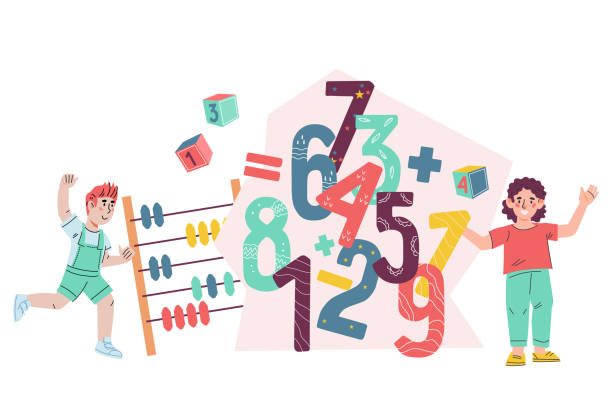
Vision
At Henbury View, we strongly believe that confidence and competence in numeracy, and other mathematical skills, is a precondition of success across the National Curriculum. Maths continues to be one of the most important areas of learning for your child, and we are fully committed to providing our children with the highest level of math’s provision. In line with the current National Curriculum, our math’s provision comprises of four areas:
The Fundamentals
We aim for all children to learn the skills and knowledge set out in the National Curriculum.
Mathematical Fluency
We aim for our learners to develop skills in choosing appropriate procedures, carrying out procedures flexibly, accurately, efficiently and appropriately, and recalling factual knowledge and concepts readily. Learners are fluent when they calculate answers efficiently, when they recognise robust ways of answering questions, when they choose appropriate methods and approximations, when they recall definitions and regularly use facts, when they use appropriate mathematical language and when they can manipulate expressions and equations to find solutions.
Mathematical Reasoning
We aim for our learners to develop an increasingly sophisticated capacity for logical thought and actions, such as analysing, proving, evaluating, explaining, inferring, justifying and generalising. Learners are reasoning mathematically when they explain their thinking, when they deduce and justify strategies used and conclusions reached, when they adapt the known to the unknown, when they transfer learning from one context to another, when they prove that something is true or false and when they compare and contrast related ideas and explain their choices.
Mathematical Problem Solving
We aim for our learners to develop the ability to make choices, interpret, formulate, model and investigate problem situations, and communicate solutions effectively. Learners formulate and solve problems when they use mathematics to represent unfamiliar or meaningful situations, when they design investigations and plan their approaches, when they apply their existing strategies to seek solutions, and when they verify that their answers are reasonable.
Implementation
Our Maths curriculum provides breadth and balance, is relevant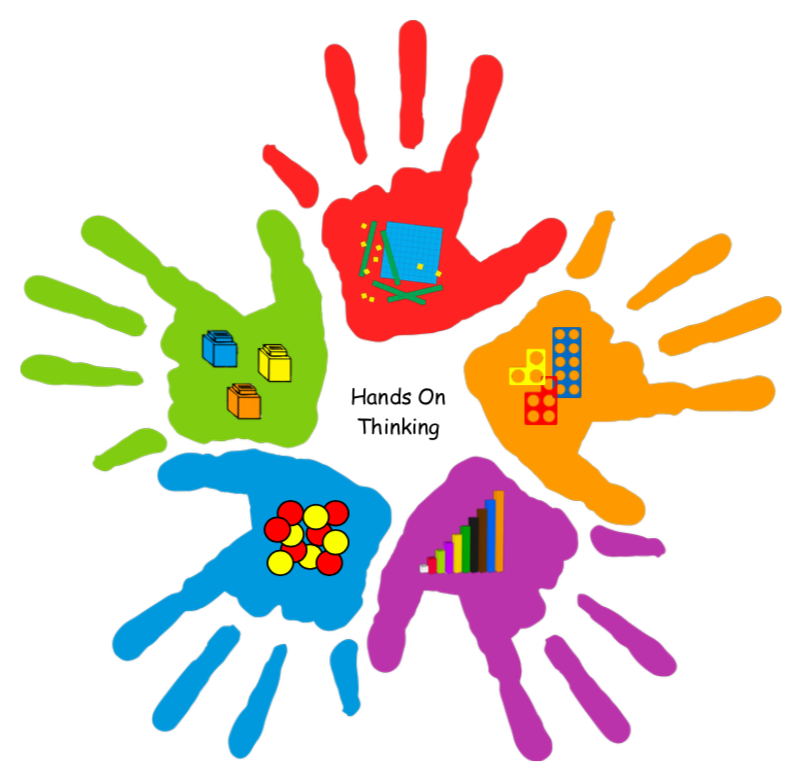 and engaging and is adapted to match the needs and abilities of all our children to ensure that all pupils are able to excel. As a school, we believe in the importance of following the concrete (hands on thinking)-pictorial (picture my thinking)-approach as a means to developing a solid understanding of mathematical concepts which can be applied in a variety of contexts through reasoning and problem-solving challenges.
and engaging and is adapted to match the needs and abilities of all our children to ensure that all pupils are able to excel. As a school, we believe in the importance of following the concrete (hands on thinking)-pictorial (picture my thinking)-approach as a means to developing a solid understanding of mathematical concepts which can be applied in a variety of contexts through reasoning and problem-solving challenges.
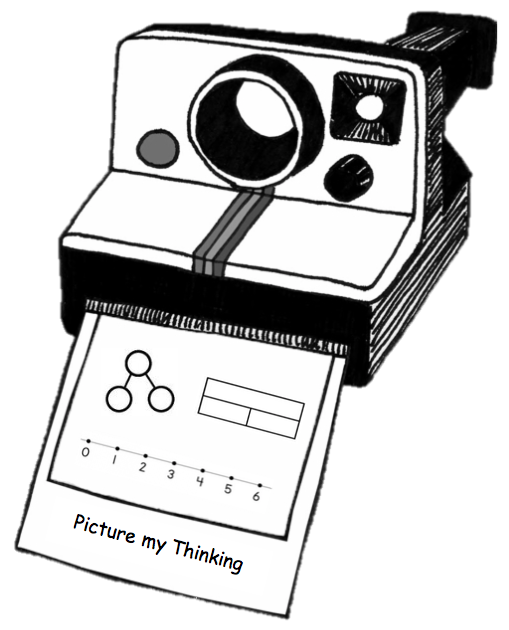 Children receive a minimum of 5 hours maths tuition each week with additional sessions devoted to number proficiency and times tables. From Reception to Year 4, we adhere to our calculation policy which outlines the progression of strategies and methods to be taught and we have an accompanying vocabulary progression document which we also follow.
Children receive a minimum of 5 hours maths tuition each week with additional sessions devoted to number proficiency and times tables. From Reception to Year 4, we adhere to our calculation policy which outlines the progression of strategies and methods to be taught and we have an accompanying vocabulary progression document which we also follow.
We use the resources provided by the NCETM but have altered the order in some cases to suit and benefit the needs of our children so that connections between units of learning are easier to recognise. From Reception to Year 4, children follow the NCETM guidance which supports children in learning the fundamentals behind the meanings of numbers and exploring other key mathematical areas. NCETM use small steps to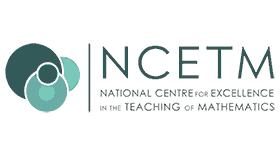 break down the teaching sequence into small achievable steps. Where children require additional support, ‘scaffolds’ are used to support children further to ensure that they have secured the small step before moving on. These ‘scaffolds’ may be in the form of returning to concrete resources or pictorial representations. For children who understand a concept quicker, challenges are used to deepen and challenge learners further within the curriculum area. Progression documents such as our calculation policy are carefully used to ensure that children are not being stretched outside their year group but rather deepened within it. In each lesson, children have a fluency activity and then ‘Problem of the Day’, which asks them to apply their knowledge and then make connections between this and their prior knowledge.
break down the teaching sequence into small achievable steps. Where children require additional support, ‘scaffolds’ are used to support children further to ensure that they have secured the small step before moving on. These ‘scaffolds’ may be in the form of returning to concrete resources or pictorial representations. For children who understand a concept quicker, challenges are used to deepen and challenge learners further within the curriculum area. Progression documents such as our calculation policy are carefully used to ensure that children are not being stretched outside their year group but rather deepened within it. In each lesson, children have a fluency activity and then ‘Problem of the Day’, which asks them to apply their knowledge and then make connections between this and their prior knowledge.
Daily assessment is incorporated throughout the lesson through live and verbal feedback. Termly NTS assessments are used as a diagnostic tool to ensure that teachers are adapting learning to meet the needs of all children and ensure that any necessary interventions are targeted specifically to meet the needs of children.
Mastering Number
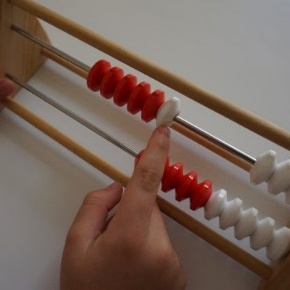 ‘Mastering Number’ aims to secure firm foundations in the development of good number sense for all children from Reception through to Year 1 and Year 2. The aim over time is that children will leave KS1 with subitising, fluency in calculation and a confidence and flexibility with number. Attention is given to key knowledge and understanding needed in Reception classes, and progression through KS1 to support success in the future.
‘Mastering Number’ aims to secure firm foundations in the development of good number sense for all children from Reception through to Year 1 and Year 2. The aim over time is that children will leave KS1 with subitising, fluency in calculation and a confidence and flexibility with number. Attention is given to key knowledge and understanding needed in Reception classes, and progression through KS1 to support success in the future.
This is a NCETM (National Centre for Excellence in Teaching Mathematics) backed programme that has a daily taught session followed by activities in the continuous provision. It is number focussed and moves slowly so that children develop a sound understanding of each step before moving on. Mastering Number is also used in Year 1 and 2 for their fluency sessions daily. These are extra maths sessions that focus on the children's ability to manipulate numbers and use them in a variety of contexts and problems.
Please see below of long term plans for 'Mastering Number' for EYFS and KS1:
What do our lessons look like?
This is the structure of a typical math’s lesson:
- Counting: Every day we spend some time practising our counting objectives. In KS1, this could be counting forwards or backwards, or counting in multiples of 2s, 5s or 10s. In KS2, this focuses more on times tables and developing fluency with multiplication and division facts.
- Number Facts: Here we focus on developing the children’s fluency with number. We use our additive facts progression to ensure coverage and developing a deep understanding.
- Fluency: We use the ‘Fluent in 5’ resources to ensure children are have continuous practice of both written and mental methods.
- Main Activity: This is the children’s opportunity to apply and consolidate new skills. For each new topic area, we use a CPA approach to embed the learning and ensure the children have a deep conceptual understanding.
- Problem of the Day: Every day we give the children a problem and discuss how to solve it to help develop their reasoning and problem-solving skills - this is an important part of maths today.

Times Tables and Number Sense
Number sense refers to a child’s fluidity and flexibility with numbers. It helps children understand what numbers mean, improving their performance of mental mathematics, and gives them the tools to look at maths in the outside world and make comparisons. Children develop number sense gradually over time and at different rates through exploring numbers, visualising them in a variety of contexts, and relating them in ways that are not limited by formal written methods. At Henbury View, to help our children develop good number sense, we teach fluency every day as part of our math’s lessons and cover main areas to help children to spot patterns and manipulate numbers to make calculations easier. This also gives them the confidence to be flexible in their approach to solving problems. We have an additive facts progression (see separate document) that outlines these main number skills which support our children to become strong mentally and make connections to see patterns within number.

We also place a heavy emphasis in our curriculum on times tables. Right from the Summer term of Year 1, children follow our times tables progression. They move up the levels when they have both fluency and accuracy. Our programme matches the national curriculum objectives with the aim for all children to be fluent in all times tables and division facts by the end of Year 4. Children are quizzed each week and times tables is taught every day within our Maths lesson cycle using a variety of different techniques, including songs and rhymes, the counting stick and 'Times Tables Rockstars'.

Maths Learning Journeys
Please see below the learning journeys for different mathematical areas:
Addition and Subtraction Journey
